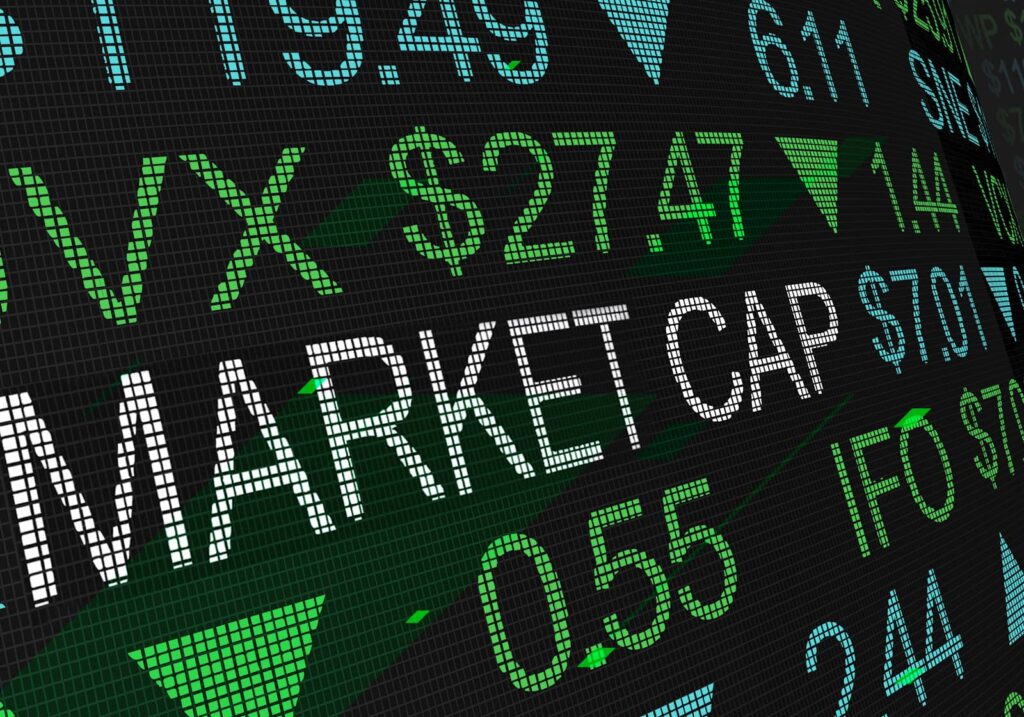If you’re diving into the world of cryptocurrency, understanding market cap is crucial. It’s not just a buzzword—it’s a powerful tool to help you evaluate and compare digital assets. In this post, we’ll explore how market cap affects cryptocurrency prices and why it matters for your investment decisions.

What is Market Cap in Cryptocurrency?
Market cap, short for market capitalization, is the total value of a cryptocurrency. It’s calculated using this formula:
Market Cap = Current Price × Total Coins in Circulation
For example, if a coin is priced at $10 and there are 1 million coins in circulation, the market cap is $10 million.
It’s a simple yet effective way to understand a coin’s size and value in the market.
How Market Cap Impacts Crypto Prices
1. Stability and Popularity
Coins with higher market caps are generally more stable. Why? Because they are more popular, have greater liquidity, and attract more investors. High market cap coins like Bitcoin and Ethereum often see steady price growth and less dramatic volatility.
2. Investor Confidence
A high market cap signals strong demand, which can boost investor confidence. People tend to trust assets with higher perceived value and stability, which can lead to even more investments and a higher price.
3. Volatility in Smaller Market Cap Coins
Smaller market cap cryptocurrencies are highly volatile. Since their trading volumes are lower, even small trades can cause significant price swings. While this makes them riskier, it also opens opportunities for high returns.
4. Exchange Rankings Matter
Crypto exchanges rank coins by market cap, from the highest to the lowest. These rankings influence visibility and investment decisions. A higher market cap often means more attention and trading activity, which can further drive up the price.
Market Cap Isn’t the Whole Story
While market cap is a key indicator, it’s not the only factor that determines a cryptocurrency’s potential. Here are other factors that can influence prices:
- Economic Trends: Inflation, interest rates, and recessions can impact the overall crypto market.
- Pegged Coins: Stablecoins and other pegged currencies derive their value from fiat currencies or assets, not just market supply and demand.
- Technology and Adoption: A coin’s underlying technology, use case, and community support play a huge role in its success.
Why Understanding Market Cap Matters
For crypto investors, market cap is a helpful tool to:
- Compare different cryptocurrencies.
- Assess risk levels (higher caps = lower risk, smaller caps = higher potential rewards).
- Make informed decisions when choosing investments.
Pro Tip for Investors
When analyzing cryptocurrencies, don’t rely solely on market cap. Combine it with other metrics like trading volume, project fundamentals, and market trends to get the full picture.
Market cap plays a significant role in determining a cryptocurrency’s price and stability. While higher market caps often mean more stability and trust, smaller caps can offer high-reward opportunities for risk-tolerant investors.
Always remember: Cryptocurrency investments come with risks. Research thoroughly and invest wisely!
Want to Learn More About Crypto Investing?
Stay tuned for more tips, or check out our beginner-friendly guides to make smarter crypto moves.
Did you find this post helpful? Share your thoughts below!


